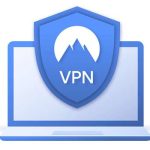 VPN stands for Virtual Private Network, and is a technology designed to connect computers online. With VPN technology, you can connect multiple computers online, and make it look like they’re connected on the same local network. Many companies use VPNs for security, but you can also use them to stay anonymous online.
VPN stands for Virtual Private Network, and is a technology designed to connect computers online. With VPN technology, you can connect multiple computers online, and make it look like they’re connected on the same local network. Many companies use VPNs for security, but you can also use them to stay anonymous online.
What is important to consider when buying a VPN service?
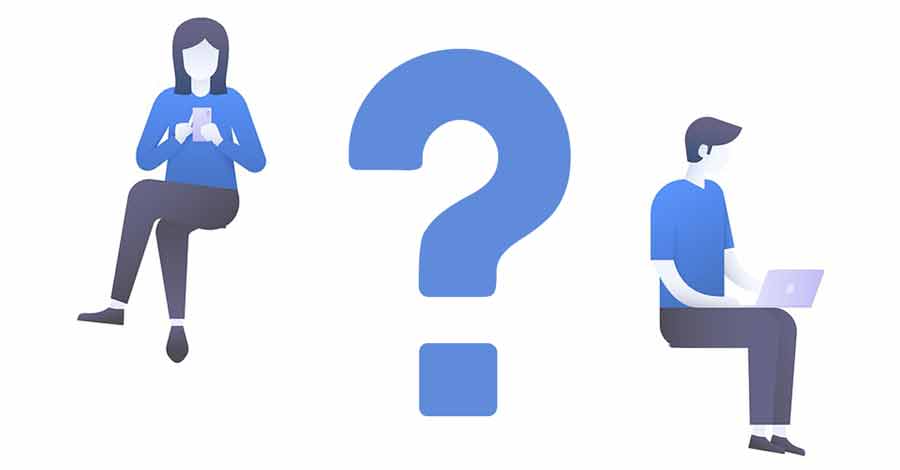
VPN services are plenty to choose from, but what should you consider when buying a service? It is easy to fall into the trap of buying the cheapest VPN, or as many others do and choose the one that is the fastest VPN. But we clearly think that what you should primarily bet on is the safest VPN, because you almost always get discounts on VPNs from all services anyway.
Of course, we understand why you want both the cheapest VPN, and also the VPN that is fastest. However, the problem lies in the fact that it is not so easy to determine which one is the cheapest and fastest. Everything is usually connected when it comes to VPN services, where an insecure service can be very fast. This is because it does not securely encrypt your data, making it appear as a fast service.
A VPN that is cheap may seem like a good bargain, but if it is very cheap, you can also be sure that it encrypts poorly. And in many cases, it may barely have any VPN servers on the network, leaving you with an extremely slow VPN connection. So our rule of thumb is that you should always bet on the most secure VPN service, as these encrypt properly, and have significantly more servers in the VPN network.
What can a virtual private network be used for?
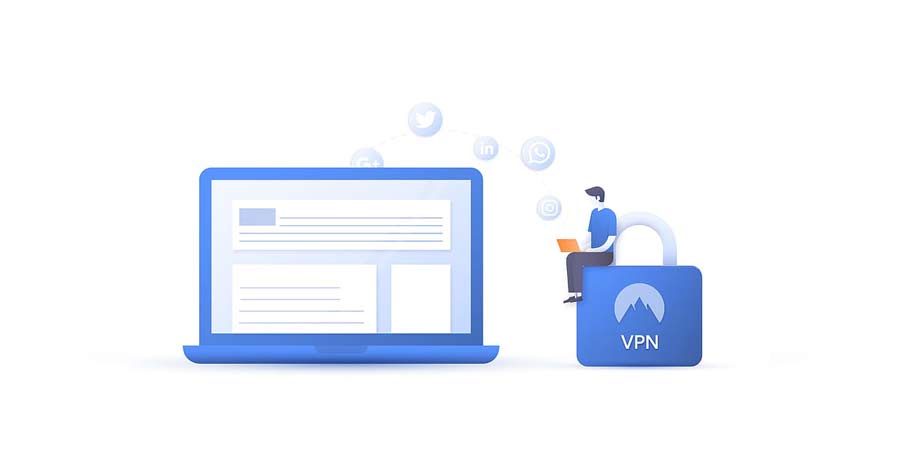
Virtual Private Network (VPN) can be used for quite a few different things, but it is primarily used for 3 different things. The technology is designed to secure data from spies and hackers who want to see and steal data, and therefore all data is encrypted both in and out between the computers in the network. This technology first became very popular among entrepreneurs, but has now also begun to be used in several other contexts.
Use VPN to avoid States monitoring their population!
VPNs have helped restore internet freedom in many countries where censorship is a recurring problem. In many countries around the world, there are very large restrictions on what you can and cannot do online. There the states (dictatorships) go in and censor everything you do not want your inhabitants to see, usually it is about newspapers and social media. With a VPN client, residents of these countries can get around these blockages, and still take notice of what’s happening in the outside world.
VPN providers are therefore not allowed in all countries, and in some countries you can get very harsh penalties if you are caught using a VPN service. In Portugal, however, it is completely legal to use a dem, as we still protect everyone’s right to anonymity online.
Streaming without GEO-blocking anywhere in the world with a VPN!
With a VPN, you can get around all the GEO-blocks that usually exist on the various online streaming services. Maybe you have ever tried to watch SVT Play abroad yourself, and are met by the text ”this program can not be seen from this country”. This is a so-called geo blocking that SVT has, which means that you can only see this program in Portugal.
Most Play Services have these blockages, as they simply have not bought the rights to broadcast the programs in other countries than in Portugal. Another very popular area of use is for IPTV services, thus pirate TV channels you can buy cheap online. Since these TV channels are not legal, most people use VPNS to protect their identity.
You can also watch American series and movies that are only available on the North American variant of Netflix. You can also see these by connecting to a server in the US, so Netflix thinks you are there. When they think you’re in North America, you’ll be able to see their entire range from there.
Is my internet connection getting slower with a VPN?
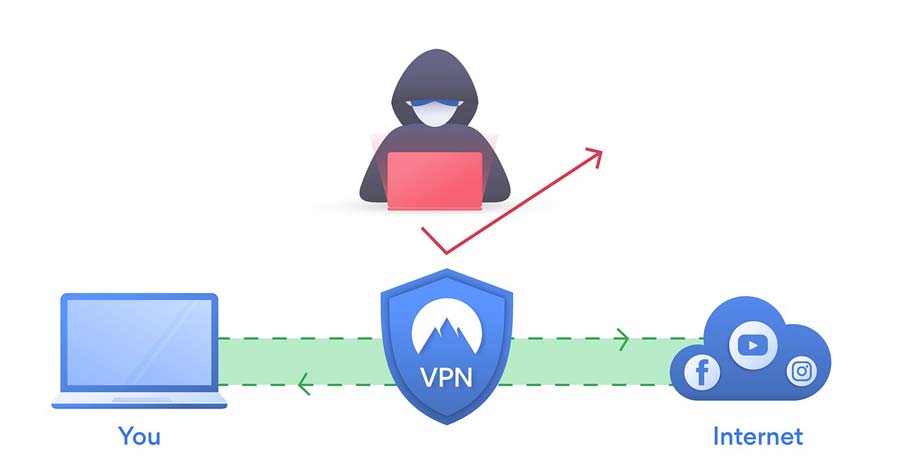
VPN services encrypt all your data both in and out of your device, which means that an extra moment on the way should take place. This causes the speed to be reduced slightly, but this is usually not a problem in Portugal where we have fast connections. But something worth considering is that you should choose a VPN provider that has servers in Portugal, which will dramatically increase the speed for you. Above all, this is important for those who get a VPN connection to watch streaming and IPTV services.
Is it difficult to use these Virtual Private Networks?
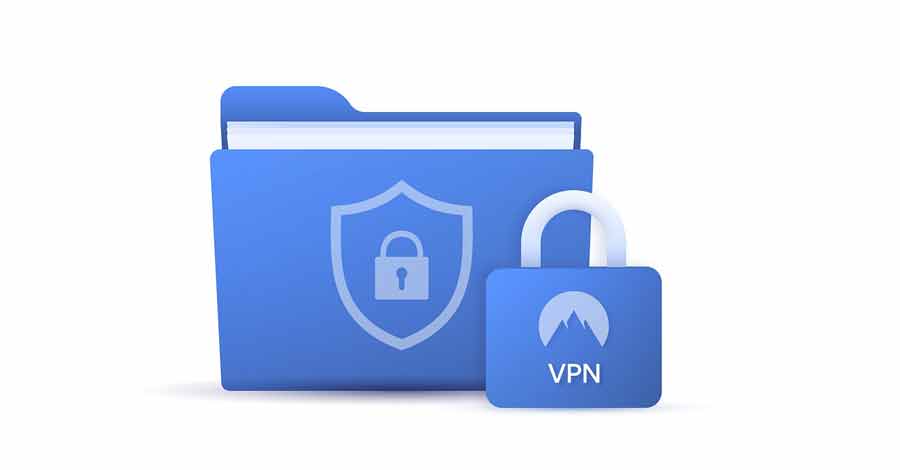
A few years ago it was actually a bit tricky to use them, but today almost all providers of Virtual Private Networks have simple apps that take care of the entire connection to their servers for you. All you have to do is download their app, choose which server you want to connect to on a map and that’s it! You don’t need to be an it technician to understand this.
Can I use a VPN to download Torrents?
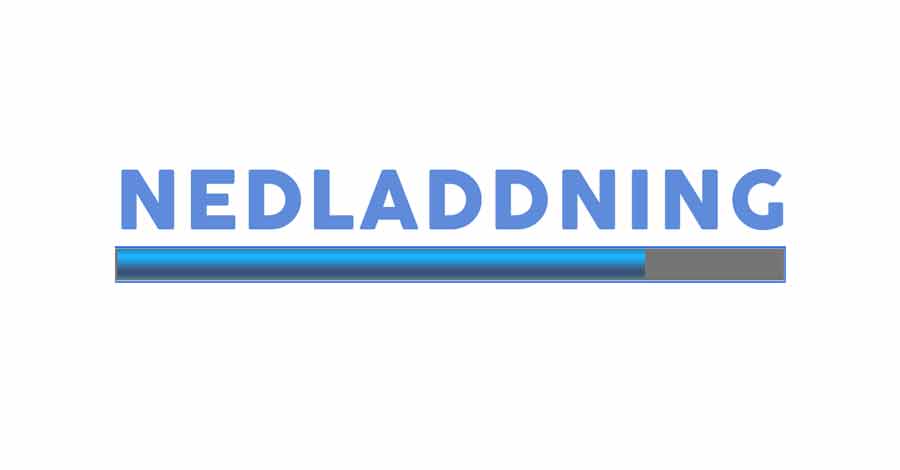
VPN is extremely effective protection for those who want to download torrents, as it ensures that no one can see what is downloaded in your data. In addition, no one can see which IP address is connected to what, as you get a brand new one as soon as you go to a VPN server. This is something that most people who download movies, games and software use today as protection not to go there.
Just be careful to buy a service that is both secure like StrongVPN, but also has no bandwidth limitations. Many of the cheaper services have these limitations, making them completely useless when it comes to downloading.
How much does it cost to get a good VPN service?
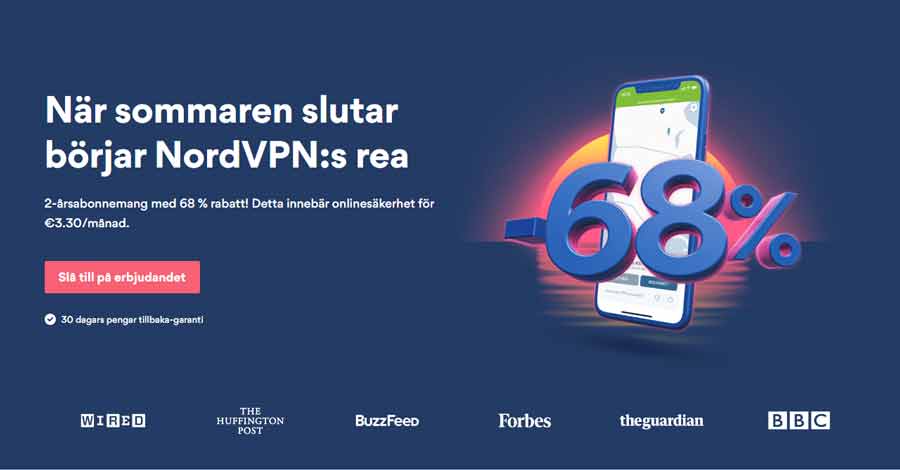
A good VPN service lands on about 35 USD to 60 USD a year, depending on how long you sign up for. Usually you have about 70% discount if you choose a 3 year subscription, and then you pay about 100 USD for these three years at once. If you only want to buy one year, it costs about 60 USD, as these are also paid directly.
What devices can I use a VPN on?
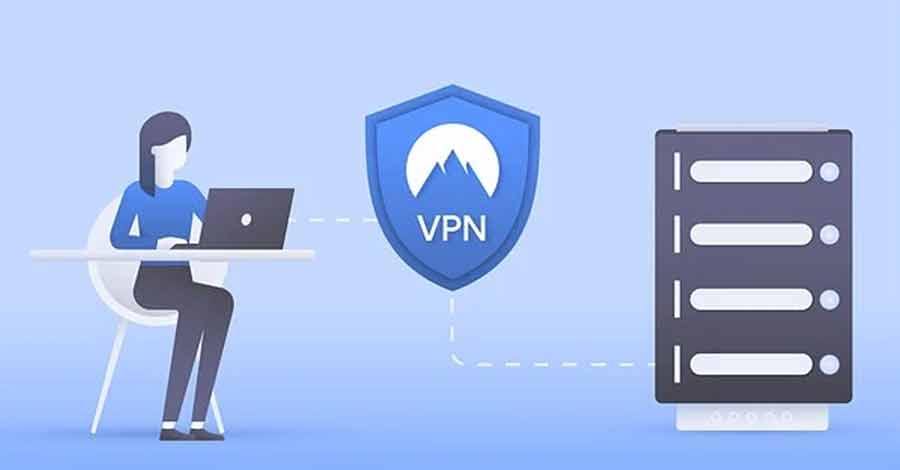
Today, you can use a VPN on almost any device, and only you can install apps on your device and you should be able to run on it. Most services support iOS, Windows, Android, Linux and Mac OS. If you have any of these, no problem. The better services usually also have apps for different Smart TV brands, as well as for different routers available on the market.
Who needs to use these services?
In principle, anyone who wants to remain anonymous online should get some kind of encryption service, as these make it almost impossible for curious people to see what you are doing online. We also think that you who have important things in your computer, and who do not want to be hacked should get yourself a connection. Hackers usually try to hack into your data when you use unsecured networks, and with a VPN you always have some protection in between.
How does VPN work?
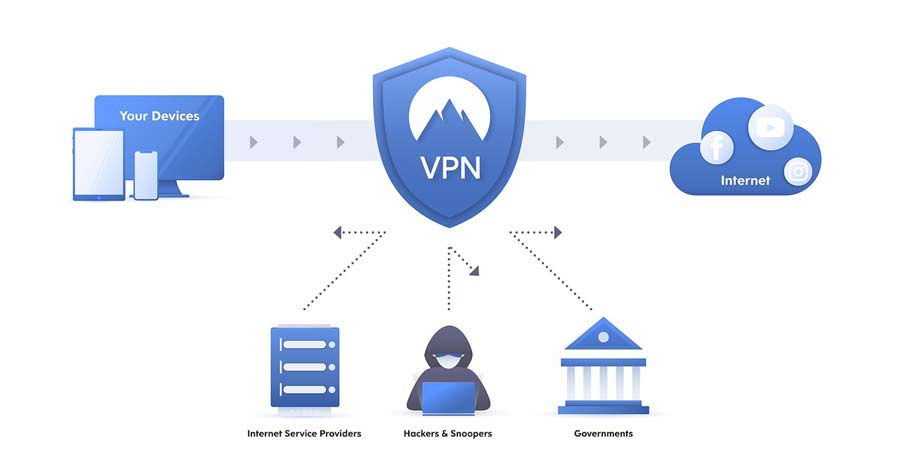
A VPN’s primary purpose is to keep you safe while browsing, and is created to make sure you can browse more privately without sharing sensitive data. This is done by establishing a secure connection between the website or service you are visiting and you or your device from which you are visiting the service. When this happens, it’s what we usually call tunneling, which means using a vpn tunnel to encrypt your data along the way. This simply makes it pointless for someone to try to steal your data, because it has already been encrypted.
For this to happen, a VPN takes over your network traffic, and redirects it through its own vpn servers – so instead of going like this:
The Device – > The Website
And back again like this:
The Website – > The Device
It goes like this:
Your device –> secure VPN servers –> website
And back again like this:
The website – > secure VPN servers – your device
This not only makes sure to improve security (although this is the main reason), but also makes sure to hide your whereabouts. Whether your smartphone (mobile), computer, tablet or game console is in Stockholm, you can make it look like you are in London. You can usually choose from thousands of different locations to connect to with a vpn service, which allows you to access services from anywhere in the world.
In short, a vpn can protect your privacy, and at the same time help you get around so-called location restrictions ( geo-blocking ). These are available on many services today, which you may have noticed if you tried to watch SVT Play when you were abroad. You will then be stopped due to geo-restrictions, which simply do not allow users from that country to access that service’s content.
How to use a VPN?
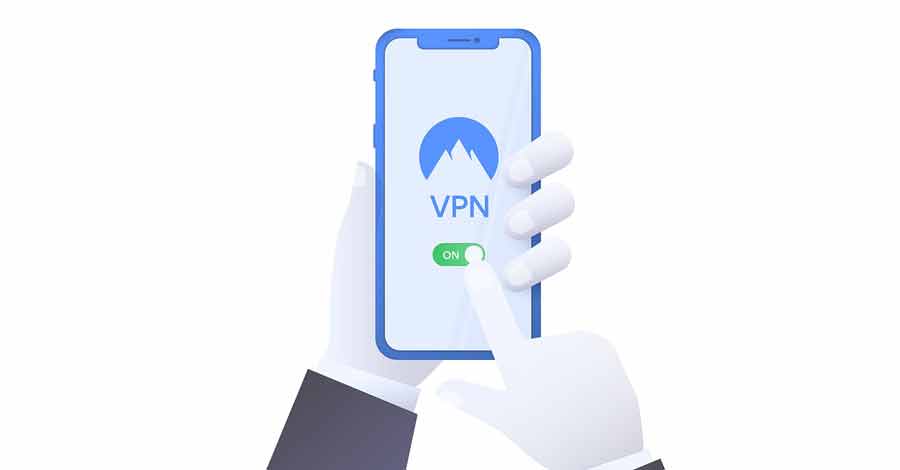
When you read all this about a VPN, it may seem difficult to use them, but the truth couldn’t be more different. The companies that provide these services are very well aware that the vast majority do not quite 100% understand the technology itself, but only want to be able to surf safely and privately. Therefore, they have also created apps that make it easy to use a vpn, and you get started in just a few minutes.
As long as you use vpn services from the big and established providers, you can count on nice interfaces and user-friendly apps. Most of the time, all you have to do is download the vpn app, and then select a server you want to connect to. and best of all, these services can also usually choose the most optimal server for you, so you get the fastest connection possible.
So if you have no previous experience using a VPN, you don’t need to worry. It may sound complicated when going into details, but once you use it, it’s completely uncomplicated.
Why do I need the best VPN?
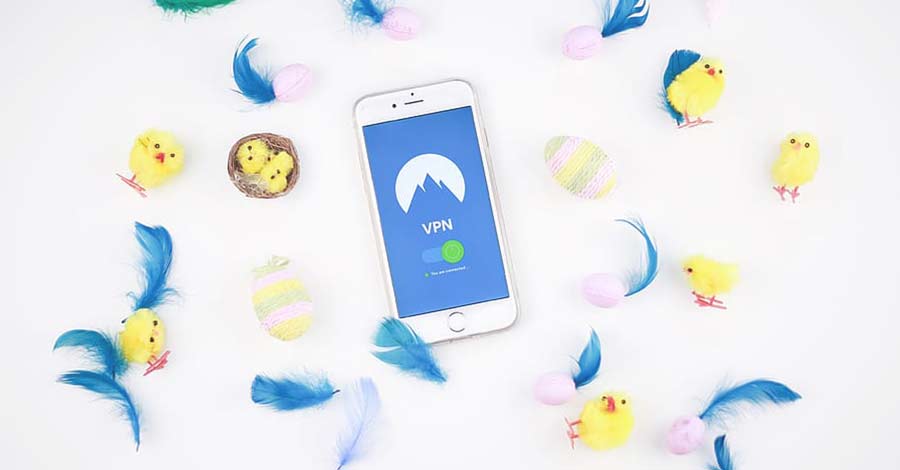
There are several reasons why you would need a VPN, where you probably already understood that the most important factor is data security. You have also probably at some point connected yourself to a public Wi-Fi hotspot at a bus terminal,airport and restaurant or similar place. Unfortunately, these are not very secure at all, and in the worst case, pose huge security risks as it is easy for a hacker to get into your device when you use them.
In recent years, we have seen many times news articles confirming the fact that hackers use these weak networks, in order to easily get into your computer or mobile phone. When it does this, it places malware on your computer, which then collects data that it sends back to the hacker’s server. Often you are looking for information such as passwords, internet banking details and credit card details. And vips without you knowing what has happened, your accounts are empty of money the next time you log in.
You are in hotspots
A VPN protects you when you use dangerous hotspots, and keeps hackers and prying eyes away from your data and personal information. You can then surf around calmly and safely, without having to worry about sensitive information and data falling into the wrong person’s hands.
Hiding your physical location
VPN also makes sure to protect your physical location you are in, by simply hiding your location. It makes it almost impossible for trackers to follow us wherever we are, and it also makes it possible to get around geo-blocks. But this is also for some almost a form of lifesaver, as many unfortunately live in countries with very strong censorship. A VPN makes it nearly impossible to see who is the real source visiting a censored website, and also makes it very difficult to see who is uploading or downloading anything.
VPN services: what can I use them for?
Often there is a great concern when it comes to using technology on the internet, and then especially if it is done by not previously known sources. By using a VPN, you can visit and test them without taking the risk of giving away important information. This is especially true when it comes to making sure to hide your internet habits and internet history from network providers and government agencies.
The VPN has become almost a symbol of freedom of expression, as it makes sure to keep you anonymous at a time when authorities and companies want to know everything about you. Thanks to this technology, millions of people around the world can get around censorship, which otherwise, unfortunately, is incumbent on them. And unfortunately you need a go as far as China to find curious people who want to know what you do online, employers have unfortunately also started to monitor their employees ‘ internet habits too.
Fooling Geo trackers with a VPN client
Many also use VPN technology to trick geo trackers, resulting in the user being able to customize their location settings to access services in other countries. A good such example is the one we mentioned above, that you can check on play Services in other countries simply. These restrictions on who can see and who cannot see the services, are mostly due to legal & licensing issues. Where it can be like that Netflix USA has only bought a license to broadcast a movie or series to North American users, and therefore does not have permission to show them to us Swedes. This has made it incredibly popular to use VPN for Netflix.
Use best vpn to protect yourself from hackers
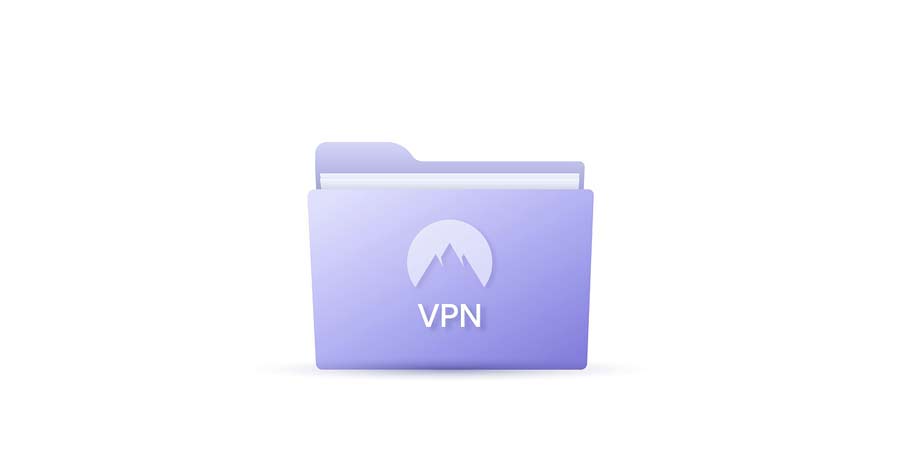
And we have already talked about using a VPN to protect against hackers, but this is something that should not be underestimated. Although many people are aware of how dangerous it can be to connect to a public internet hotspot without protecting themselves, this plunge into the block unfortunately takes place. And hardly a day goes by without you being able to read about people who have had their accounts emptied.
But perhaps most quickly, this technology has been received by companies and the business community, where there are obvious reasons to protect their data. We live in a time where many employees work on the move, but also want to be able to access the company’s internal network. When you travel around a lot, you often have to connect to unprotected third-party networks, which means great risks for the organization. Cybercriminals know about this, and can stay in the same hotel as you only to be able to hack your data and access sensitive company information and patents, customer data and internal communications. With a VPN, this is no longer possible for them, and dy protects both you and your company’s secrets.
There are many VPNs to choose from, but which one is the best?
All VPN services, which are a hundred today, have both pros and cons. Most of them, of course, offer apps and the ability to access play services such as SVT play, TV4 play and IPTV services from other regions.
In addition, a VPN can be used to bypass the throttling of your internet connection by your internet service provider. Portugal may not notice this because of prime time, which is between 19.00 – 22.00 in Portugal. This is when most people use the internet, and you usually notice that your ISP throttles a download and upload speed. This means that, among other things, these times sometimes you can not watch on Netflix in better quality than 480p .
Also worth noting is the fact that when it is still popular with so-called phishing on the net, a VPN can make sure to protect your mobile and computer from getting malware installed on your device while surfing the net.
Free vs paid VPN: which is really best?
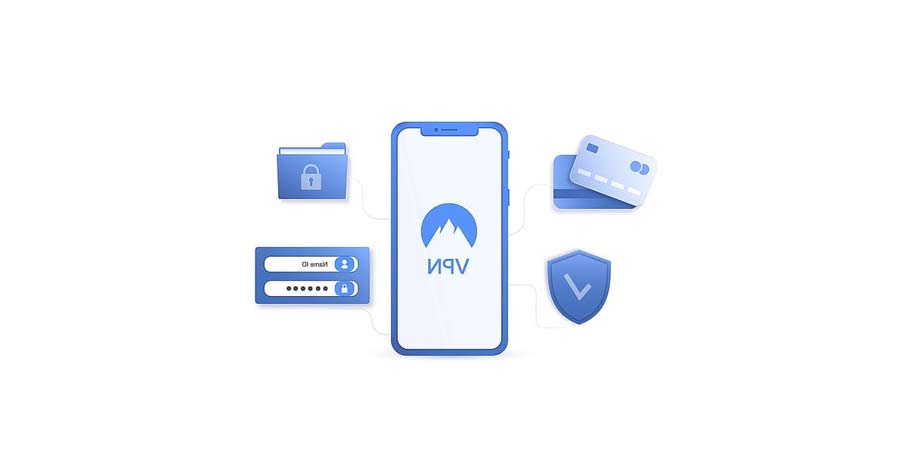
Some services offer a free version with very simple and basic features, and of course the question is whether these free VPNs are even close to as free as the ones you pay for?
As you probably understand, there are few things in society today that are free, and VPNs are unfortunately no exception. Unfortunately, there are always hacks with everything that seems too good to be true, and so even in these cases. Most of these services don’t keep a high-quality encryption, like the ones you get paid for do. Almost always you have restrictions on how much data you can use, and most services do not allow you to use it for downloading using so-called P2P technologies such as torrents.
Another thing that is completely insane is that when you use these services, you agree that they have the right to sell information about you to third parties. This is completely screwed to think that you would agree to, when the whole reason for getting a VPN is precisely to avoid such things. But these companies have to get money from somewhere, and then this is one way they can do it.
A lot of advertising on the free services
Some of the free vpn services you can use also have a business model with advertising as a revenue base, which for you means that you are constantly exposed to advertising. this allows to provide the service itself for free, but the concession is disturbing advertising. Examples of this include Hide.me where a 2 GB free version can be signed up for, but where you who run the free version get to take the bandwidth that is left over, after those who pay and who are then prioritized have used their own. You also only get three different places to hook up with, Canada, the Netherlands and Singapore which is very stingy.
We think free plans might be better than nothing at all, but really only work for simpler needs. If you’RE using a VPN to watch IPTV channels, this simply won’t work. You will quickly see that your iptv box will start to lag, and the whole experience will then be ruined. If you still buy an iptv service that you save many thousands on a year, can’t you add a couple of wonders for a good and secure vpn service?
The benefit of the services you pay for
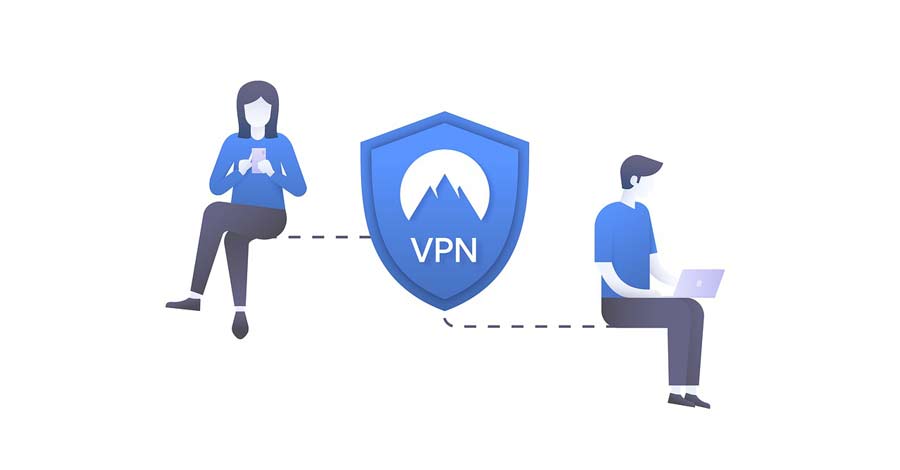
So what are the immediate benefits of a paid service, versus one you get for free? We naturally think it’s important that your personal information remains secure, and that no one can see what you’re doing online even if you use a public Wi-Fi hotspot.
VPN can make sure to give you a completely new digital identity, which in this case means getting a new IP address from another country. As you get this, it also becomes much more difficult for websites to see where you are coming from. That by extension also means you can bypass state censorship, if you are in a country with such.
Even completely mundane platforms we use every day can have this type of censorship, where a good such example that you may have come across yourself Is Youtube. At some point, you may have tried to watch a video, but received a message that the video you are trying to watch is ”not available in your country”. There are more such examples with streaming services that make use of these geo-restrictions, and all these problems are solved by a good VPN.
Best of all with a good VPN
Here comes perhaps one of the best reasons to buy a vpn, that you do not have to think about skimping on data. It may not be something you think about in the first place, but if you use IPTV and other streaming services, you want good image quality. Today when there are HD channels, and also 4K channels, you also want to be able to take part of them. You can’t do this with a free vpn, as it will only lag for you.
When it comes to security, it cannot be overemphasized how important it is that you protect and encrypt your data, otherwise you run the risk of incurring huge damages due to viewing copyrighted material for free. With a good vpn, you can sit quietly in the boat, and watch the movie or the game without worrying about your ISP noticing that huge amounts of data are going to you, and start investigating what kind of data it is.
Unfortunately, there is nothing that is free, and chances are that if you do not pay for a product, then you are the product.
Our recommendation
So our recommendation to everyone is that it is a given that you should buy yourself the best vpn service, so you avoid both slow speeds and broadband restrictions with annoying advertising. All the free VPNs we have tested have been bad, and are absolutely not an option for those who value security and anonymity highly.
A good option for those who want to get down in cost for your VPN, is to choose one of the service offers. You get a much better price if you sign up for a 3 year subscription, than if you choose to buy only 1 year. Usually you save almost 70% on such an offer, and can then come down to a monthly cost of about 30 USD a month.
And finally, we can also point out that the serious players often also offer free trial versions, so you can test the vpn service with little restrictions. This is a good way for those who are unsure which service to choose, and so can test yourself until you find the best vpn service. If you want to check out all the services, compare the VPN services with us via the link.
How to choose the best VPN service
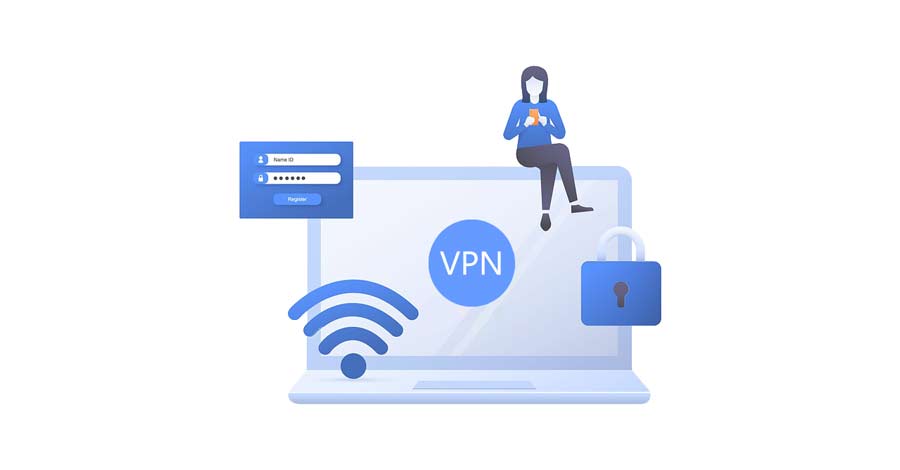
When it comes to choosing the best vpn service, it can be a bit tricky for those who don’t know what to look for. But we’ve put together a list with the 6 most important factors to look out for when choosing your vpn.
- Does the service in question have servers in the countries & regions you need? A service that has many servers around the world allows you to look at play services from many different countries. In addition, it helps to unload the network with more servers, as not as many should go through the same tunnels. A simple rule of thumb is the more servers, the better simply.
- How many devices can you connect at the same time? If you’re going to use a VPN on your mobile anyway, why wouldn’t you want to protect all your data on your other devices as well? With paid services, you can usually connect up to 5-6 devices at the same time, which means that you can connect both the mobile, computer, tablet and iptv box at the same time.
- Shows the provider what type of connection protocol they are using. We think it is an important factor that users should always be able to see what technology a provider of the service uses, as this reduces the risk of them giving up on security because there are always like-minded people like us, who will review the service. If you choose a provider that uses OpenVPN and IKeV2, you can rest assured that it is a fast and secure service. You should always be able to see that they use the SSTP technology, and the somewhat older PPTP technology and a protocol alternative such as (TCP or UDP for OpenVPN).
- All vpn providers say they don’t save what you do online. This is something that you should also take an extra look at, so that the service you choose does not log and save your data. the better services only use servers without a hard drive, and everything you do goes straight through the servers ‘ memories instead. The great advantage of this is that it then does not save anything, and that it is not possible to recover data again that has been deleted.
To make sure you’re really using a service that hasn’t wavered on security, always check out the Privacy Policy and terms of service so you can find out more facts before purchasing the service. - Simple and easy to understand software that you can install on your devices. We think that some such simple things you should require is that it is easy to change the server you can connect to. It should also be easy to turn the service on and off, and you should of course be able to add your favorite servers to a list so that you can easily find them again at a later time.
Don’t forget to also check that the app/software works on the intended device, which is not always obvious. Some of the services have really lousy software, which almost forces you to be a hacker yourself to understand them. - Of course, also the price of the service. One simply does not get away from the fact that price is a very important factor, and there are some traps to go into. many of the services attract with almost too good to be true prices, which they also sometimes are. We have seen services that at first claimed that they only cost about 3 USD a month, but the month after suddenly cost you about 10 USD a month. of course, you have then missed something in the small print, and you are stuck in a fraudulent vpn service.
Therefore, our recommendation is that you choose a stable service such as NordVPN, RusVPN, PureVPN or ExpressVPN. These services have more to lose from starting to deceive their customers, than not to get an extra using fraudulent marketing methods.
What you should do before choosing a service
There are a few things you need to take a consideration to fix before choosing which VPN to buy. Some of these we have touched on already in this article, but it is important that you take them seriously. When you choose a VPN, you’re doing it to make sure you stay safe and anonymous, so make sure you do the prep work properly when choosing a VPN, too. After all, there are some pitfalls, and unfortunately, some VPNs also have vulnerability areas it can work on.
- Some of the services offer their users free password managers. which securely keeps track of your usernames and passwords on the internet. Be sure to use them, and especially if you want to be safe, never use one and the same password in all places.
- When it comes to security, there has been a lot of development in recent years, and one of the Better Things is so-called two-factor authentication. This type of security feature should of course be enabled wherever you can, and you can do this on Google, Facebook and Twitter, among others. There are also apps that help with this, just search for Authenticator and Yubikey which is an SMS service for two-factor authentication.
- Make sure your laptop is encrypted, so you don’t have to be worried if someone would steal it from you.
- When choosing a VPN so you can’t be spied on by companies, and be bombarded with advertisements, a good browser can be helpful too. If you choose to surf with Tor, EFF’s Privacy Badger, HTTPS Everywhere and uBlock Origin, you will leave minimal traces of you on the websites you visit. It also allows them to use less data against you that they have about you, and you don’t have to worry about them selling your information to third-party advertisers.
- For those who use the Firefox browser, you should use DNS via HTTPS (DoH). That makes it improve your performance, while protecting your sensitive data from being resold to third parties. To set this up, you need to go to network settings in Firefox, and scroll down a bit to enable DNS over HTTPS. then click in that you want to use this by default.
- All of these steps are good to take to protect yourself more, and minimize the risk of leaving digital footprints.
If you want to read and learn more about how to protect yourself with a VPN, and what other security risks there are online, you can go in and read our guides. There we have put together a lot about how to best use a vpn service, and new interesting uses you can have them for.
Is VPN legal?
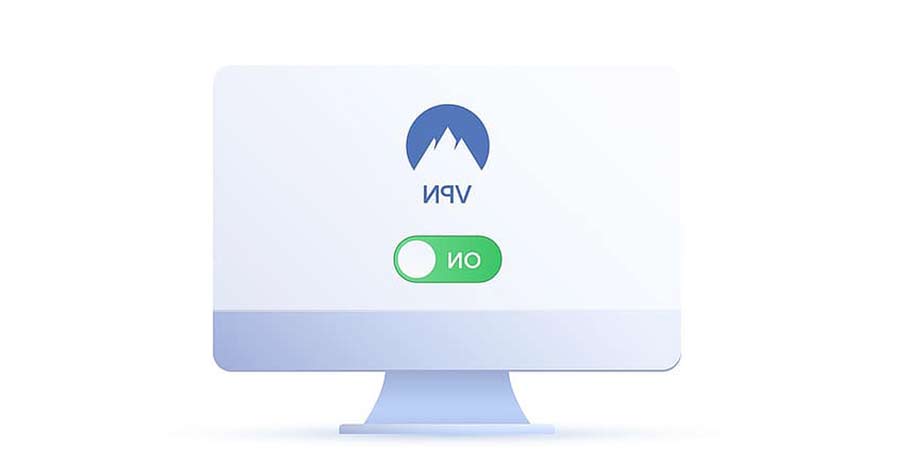
VPNs are legal to use in almost all parts of the world, but unfortunately there are countries that have already banned VPN services or have set draconian restrictions to reduce their use. And more and more countries are becoming increasingly concerned that these services are so rapidly becoming popular, as they pose a threat to their knowledge monopoly. Fortunately, there are as yet no known cases of tourists who have gone there to use a vpn in a country where it is not legal. This is probably because they want to try to prevent their own population in the first place, and do not want to get a stamp all over the world as a dictatorship. But taking precautions doesn’t hurt, and you might not want to sign off on using a VPN service in a country where it’s banned.
But there are also other types of legal vpn use in some countries, including China, which has allowed the use of vpn services that have only been approved by the Chinese regime. How much benefit this type of Service gets you figure out yourself, but the alternative is that you get a hefty fine if you use a vpn that is not sanctioned by the government of China.
In countries such as the United Arab Emirates, you could face astronomical fines, or in the worst case, even prison for using a vpn. In a previous case, a man was fined almost half a million dollars, and one can assume that this is to set a deterrent example. In countries such as Iran and Russia, the situation is quite similar, and even in these countries you risk going to jail for using a vpn that is not approved by the state.
Then there are countries where they do not allow internet service providers that offer their customers VPN services at all, and where they make sure that the country’s population should not be able to find them on Google with the help of censorship in the search results. These countries consider that a VPN could be used for illegal activities, which in itself is very fuzzy.
But in short, it’s perfectly legal to use VPNs in about 95.9% of all countries in the world, except for a few places that you have a list of below.
- China
- Iraq
- Russia
- Belarus
- Turkey
- Oman
- United Arab Emirates
- Iran
To avoid these countries, there is no danger of using VPNs legally, and very many companies use this type of service to protect themselves from being stolen on sensitive data by hackers who carry out data breaches.
Are there any risks to using a VPN?

There are a few risks involved in using one of these services, and mainly it involves using them for any of the following things:
By using a VPN that is not approved by a country’s regime, when required in such a country. You have a list of such countries above.
You also run the risk of using your VPN connection for illegal things like downloading and using illegal iptv services. Although this risk is minimal, the whole idea of a vpn is that you should not Cod, so theoretically there is always a risk, however small it may be.
But other than that, it’s just a nod, so to speak, and the vast majority of people get a vpn service just because they want to protect their data from others committing illegal acts against them. After all, the most common is that you want to be sure that no one is spying on you, and that you can keep your sensitive data alone from unwanted viewers.
VPN services: how we tested them
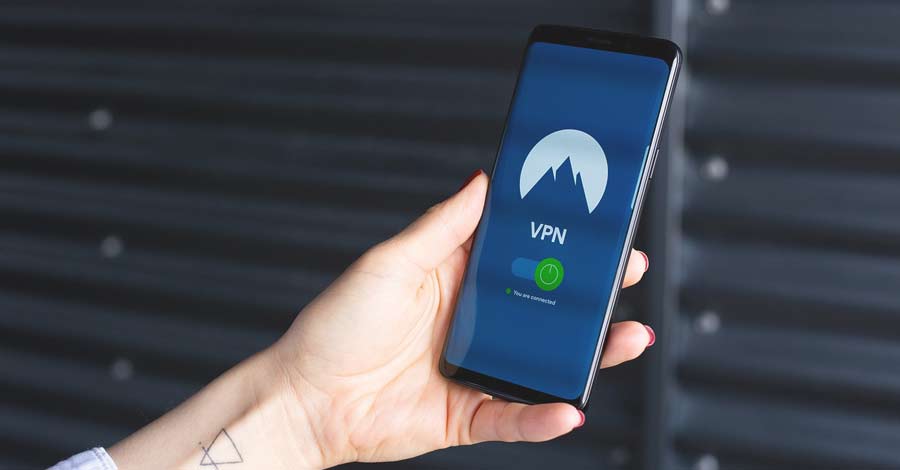
When we tested VPN services, we have mainly checked for what features, and how high the security level is on the service. Other important factors we have looked at are what value you get for your money, and how the prices have looked for the different services. For example, there have been test versions, which allow you to first evaluate the service. How does the service look at such things as a refund, if you would not be satisfied with the service. In addition, the provider can guarantee your privacy and anonymity when signing up for the service, simply allowing you to register without lots of unnecessary info like email, credit cards and with the option to pay with cryptocurrency like bitcoins.
Unfortunately, all too often you also have to go in and read the fine print of the Privacy Policy, If you want to have all the facts on the tables. This is something that should, in our opinion, be on the product page of a good service already, but is not at all a matter of course with many providers. We think it should be clear how data is handled in the company’s vpn servers, so that no data is saved.
VPN performance is of course also something we look at extremely carefully, but this is a bit trickier as there are many different factors to take into account. We have partly tested the performance of all the services on a page called speedtest.net , in order to measure the response time of the service in question. Here we have checked upload speeds and download speeds, from both servers in Portugal, but also from countries such as the United Kingdom and the United States. After we do that, we turn off the vpn service, and do the same test again to see what the difference will be.
Since we assume that our tests are for what requires a VPN of the highest rank that can top performance, and be able to broadcast live hd streaming, there were many services that fell away immediately. And to broadcast resolution on 4K streaming, only the services that have a Português presence with their own vpn servers could stream without a lot of lag.
That a VPN should always give you a completely new IP address is a matter of course, but we also take the opportunity to see that they really did this too. After looking around at some of the best vpn services on the web, we were also able to quickly find the services that had problems with DNS leaks, which in the worst case could reveal the identity of their users. We used a tool called IPLeak.net , which is a tool that displays your current ip address.
As a final test, we also chose to assess the provider’s app and software to see how user-friendly it is. A good service is both easy to use for the inexperienced, but also has many options to configure their very own specific settings in order to optimize the experience of the vpn service at the local level.
When all this was done, we gave the different vpn services a final rating from 0-100 hundred, and thus brought out a test winner that we consider to be the best vpn service in 2022.
Now you know how we went about testing these services, if you go back to the top you can see our test winners of best VPN 2022.
Can I use Tor or a proxy instead?
Let’s take a closer look at Tor, proxies, and VPNs that are basically for the same thing, but use completely different types of technology and software.
Tor or The Onion Router as it is short for, uses much the same technology as a vpn service, so there are some negative aspects with them. With the help of Tor, you can bounce between many voluntary servers, which in this way anonymizes who is doing what. This of course makes it more difficult to read your data for the curious, but the network is for surfing. it is not created to be used for live streaming services, and the network is way too slow for this purpose. This is simply because all servers on the network are voluntary, and so ledes also does not have the capacity to move and encrypt the amount of data required for live streaming services.
But not everything is bad with tor, but on the contrary, we think it’s a great thing if used for the right purpose. Comparing Tor which is completely free against a paid VPN is both unfair, and pointless as well. The services have two different purposes, and should thus also be used. They actually work best together. where you use Tor as the browser paired with your VPN. In this way, you achieve maximum anonymity when surfing the web.
Just make sure that the VPN you intend to buy is compatible with Tor, which our test winner NordVPN is. They also offer something as unique as special dedicated servers for Tor users.
Proxy services in turn have the speed with them, and can easily be used to watch iptv and live streaming services. But the big drop and loss with these is instead that your data is not encrypted, which it does with a vpn. And it is precisely the fact that nothing is encrypted that makes this service faster, but significantly less secure than a VPN. So the bottom line according to us and others is that you can just as easily skip protecting yourself at all, as using a proxy when it really does not protect you at all.
Which is the best VPN for my device / software / operating system?
A vpn service can be available for several different platforms, and in slightly different versions that they are designed for the different platforms. And depending on the device and platform you plan to run on, a few different VPNs may be best.
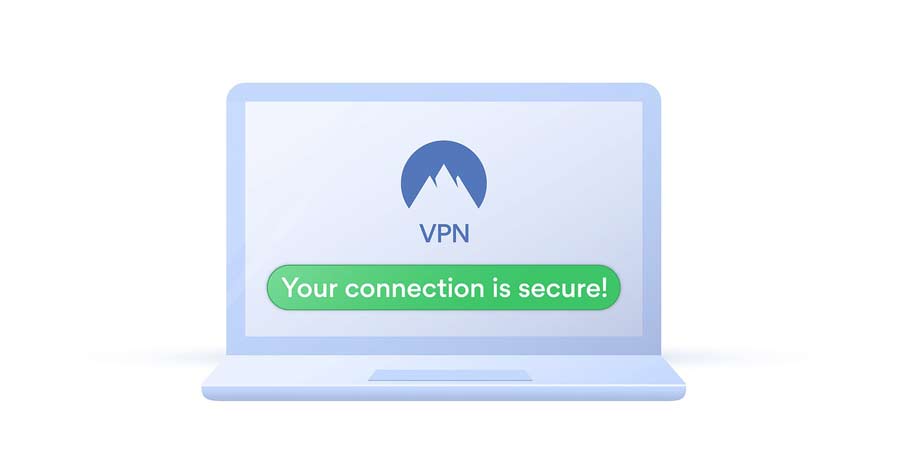
And the truth is, there is currently no vpn provider that is the best on all platforms, and some of them don’t even have software for all different devices. This, of course, is something you must always check out before buying a vpn service, so that it actually supports the platform you intend to run it on.
Something you can easily forget to do is check that the vpn provider’s program and app actually supports your operating system’s version. often you only see that it supports your operating system, but you simply forget that it also supports the version you yourself run on. If you have an old computer, mobile, tablet or other device with a few years on the neck, this is extra important to check out.
Below is a list of common operating systems that the best VPNs support:
- Windows
- Mac
- iOS, iPhone, iPad
- Android
- Chrome
- Firefox
- Safari
- Apple TV
- Smart TVs
- Kodi
- Fire TV Stick
- PS4
- Routers
- Roku
What it does & doesn’t do
Using a VPN helps you stay anonymous, and can make it look like you’re in a completely different place than where you actually are. This comes in handy when you want to get around geo-blocks, which you often find in streaming services. This is also one of the most common reasons for many Swedes, and Asians get a VPN to be able to watch American Netflix. Even some newspapers have location restrictions, which means that we from Portugal can not read these newspapers.
Unfortunately, there are a few things not all services help you with, and while a VPN protects your privacy and anonymity, it unfortunately doesn’t help you from getting malware installed on your device. Some of the best VPNs have built-in malware and spyware protection as well, which sort of filters the data before you get it. A bit like a virus program you might say. And if you use one of the larger vpn providers on the market, they also have a good look at which sites have malware on them. Then they make sure to blacklist those pages, and you can’t visit them.
So even though all the data that travels between you and a vpn server is encrypted, it doesn’t necessarily mean that it’s encrypted when it leaves the vpn server before it arrives at you. And in a fairly recent case, it was discovered that a more well-known vpn provider had stealthily installed an ad extension on their users ‘ browsers, without their permission.
As you probably understand, this is about a free vpn service that does not charge, but which saw a chance to still make money in an unauthorized way by sneaking in advertising without permission. This is one of the reasons why you should not run with the free services, because in the end nothing is free and no one can run a business without any income.
And for those who travel a lot and want to be able to watch SVT play, ViaPlay, Dplay and similar services from abroad as well, a VPN is just the way to go. As we said before, they help with the exact location and geographical restrictions that almost always exist on these services.
Can you use VPN to watch Netflix?
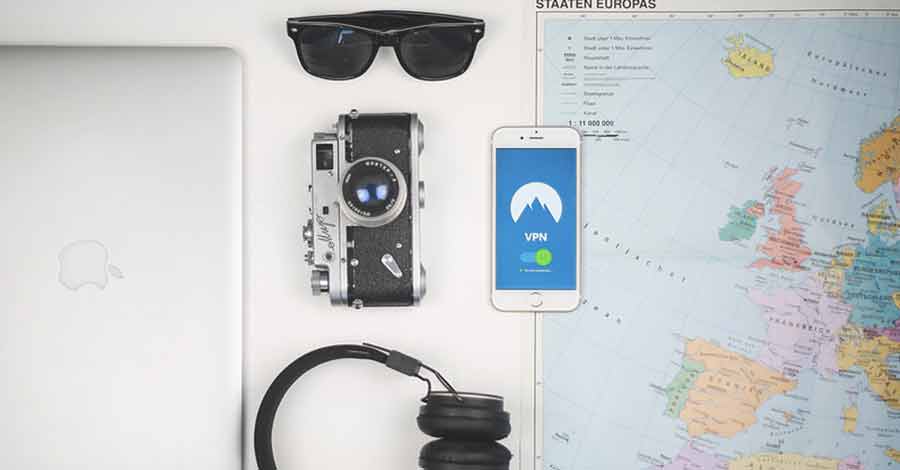
That every VPN provider claims that their particular service works with Netflix, is a complete lie unfortunately. Since there are so many people who get a VPN service just for this reason, this is also a good selling pitch. Of the 4 vpn services we have included in our best in test, Netflix works on all of them.
But overall, about 70% of paid VPN providers ‘ services can handle it, and significantly less of the free vpn options on the market. It’s as if Netflix is fighting a fight against the vpn services, and simply does not want you to be able to watch American Netflix with the help of a VPN.
What Netflix has done is that in recent times it has been very hard on various VPN services, and even proxy servers that try to circumvent their geographical restrictions. It makes sure to block the IP address of the VPN server, so that it simply does not have access to the service. And it goes without saying that a service with many thousands of IP addresses is much harder to stop, than a free vpn provider that only has access to a few VPN servers with few IP addresses.
Is downloading safe with the best VPN services?
The short answer to this question is yes, if you make sure that your identity remains anonymous when sharing files using P2P technology.
However, there are obstacles you may encounter, and then it is mainly if you would choose a VPN that does not allow downloading on its servers. however, this applies almost exclusively to free services, as these services ‘ servers cannot handle all that data. To keep the server capacity down to a level that the service can handle, they make sure to limit the bandwidth so that their VPN server is not overloaded due to downloading.
To be sure that the VPN you choose works for downloading, choose one of the 4 services we have listed in this article. If you want to look up a service of your own, then you should check for these 4 things:
The service should allow unlimited data, which is a must as all games, programs & movies are on several GB today.
Do not limit to a certain number of servers, which will significantly slow down your download.
Make sure that they do not save your data on any hard drives, but it should be deleted immediately.
The speed, so you don’t have to wait for years and days to get your files downloaded.
In principle, you want a full green light from the vpn service, so you know for sure that they will not reveal your identity as it would happen to curious authorities. After all, we are talking about sharing copyrighted material that is shared illegally, and above all, free VPNs don’t want to take the risk of getting into expensive legal proceedings on something that doesn’t make any money anyway.
What you can be sure of is that no free service will want to eat your balls if it should be the case, so make sure to respectfully pick out your accomplice.
Get to know your VPN types
The VPN services we offer iptv.se everyone has the AES-256 encryption standard, which keeps even the most savvy hacker with a supercomputer away for many years. This type of vpn encryption is simply extremely difficult to crack, and few if even someone tries their hand at hacking it when they see that the data is encrypted with the AES-256 standard.
All 4 VPNs we tested-NordVPN, RusVPN, PureVPN, ExpressVPN-are so-called full-service VPNs, which means that no matter what you plan to use them for, they make sure to protect you and your data. You don’t have to worry about any of these well-known services, but you can sit back and let them handle the security for you.
The services in question also offer a wide variety of platforms, and operating systems that they support. it simply doesn’t matter if you intended to run them on Windows, Mac, Android, iOS or Linux operating systems. They have software for all these operating systems, and you are allowed to use them in all countries around the world.
Some other interesting facts about these VPNs are that the majority of them are extremely anonymous in themselves, and allow their users to pay with cryptocurrencies to remain completely anonymous. They hardly want to get to know their own customers, which must be said to be unique in a world where companies normally want to know everything about you. And perhaps funniest of all is that in many cases the vpn providers themselves hide behind so-called offshore companies (or shell companies).
This does not do the services to hide from you, but rather so that states and authorities will not be able to have any access to them. They simply want you as a user of their vpn services to be as anonymous as possible.
VPN protocol
VPN protocols come in several different types, and the 4 different VPNs we’ve reviewed that are best suited for streaming and iptv don’t all have exactly the same type. Most of the major operating systems on the market today support the most common vpn protocols used, which means that you can even run their vpn service completely without their own client software if you are a shark on networks.
For those of you who don’t feel like you’re ready to fuss and get into how exactly a vpn service works, these vpn providers also have great guides, of course. You will get help with how to make the different protocols work on different routers, and on different operating systems. In other words, you don’t have to worry about how to set up a router to work with your vpn client.
The 5 most common types of protocols:
OpenVPN is perhaps the most well-known type of protocol used by the various vpn services, and there are good reasons for this. With OpenVPN you get a very secure connection, which is also constantly being developed as it is an open source. The protocol is most commonly used in so-called TCP mode, or in UDP mode which is a live streaming mode. The latter of these two is the faster of these two protocols, but also not as secure. For the whole thing to work, you usually need to use the client software, which means that you usually have to choose a vpn service that costs a little.
Layer 2 Tunneling Protocol with Internet Protocol Security or L2TP / IPsec as it is abbreviated, is not a secure protocol in itself. This protocol should therefore be used in conjunction with IPsec secure-networking, in order to be more secure. Once Upon a time, this was considered the safest option, if done correctly, that is. But lately, more and more vpn services have switched from the L2TP/IPsec protocol, to the much more widely used OpenVPN today.
Internet Key Exchange version 2, abbreviated as IKEv2, is usually run in conjunction with IPsec. This is a relatively new protocol standard, which has gained a lot of ground recently. If configured correctly, this is an incredibly strong and secure protocol. IKEv2 has support built in for the latest versions of OS X/ macOS and of course also Windows.
SSTP is Microsoft’s very own protocol, which among other things has a built-in support on Windows Vista and newer versions of Windows. Secure Socket Tunneling Protocol as it is actually called, is said to be a relatively secure protocol, but this is to be taken with a pinch of salt.
Last but not least, we also have the PPTP protocol, which in English means Point-to-Point Tunneling Protocol. This used to be a popular protocol, but is considered by most people today to be an outdated protocol. Unfortunately, over the years, more and more security flaws have appeared, which hackers have been able to exploit to their advantage. The only thing that should be said to be possessive of the PPTP protocol is that it is fast, and has built-in support in both Windows, Mac OS X, iOS and Android. For those who want to stay anonymous when streaming, this is unfortunately not an option as it does not protect your data.
Does the best VPN services affect your internet speed?
Since you have to both tunnel and encrypt, it affects your internet speed a bit. You usually expect about 30% slower internet connection with a paid VPN, and significantly worse network connection with a free vpn provider.
To test your speed on your internet connection, you can do this at Bredbandskollen, and measure what speed you have without a VPN. If you then assume that you have to have at least 30 mbit/s to be able to watch iptv and live streaming, then you might need about 50 at least with a VPN service.
Of the VPN services we tested, NordVPN had the least impact, and this is also a big reason why we think this is the best vpn service right now. Of course, this was not all we looked at, but it was clearly an important factor in our overall rating.

